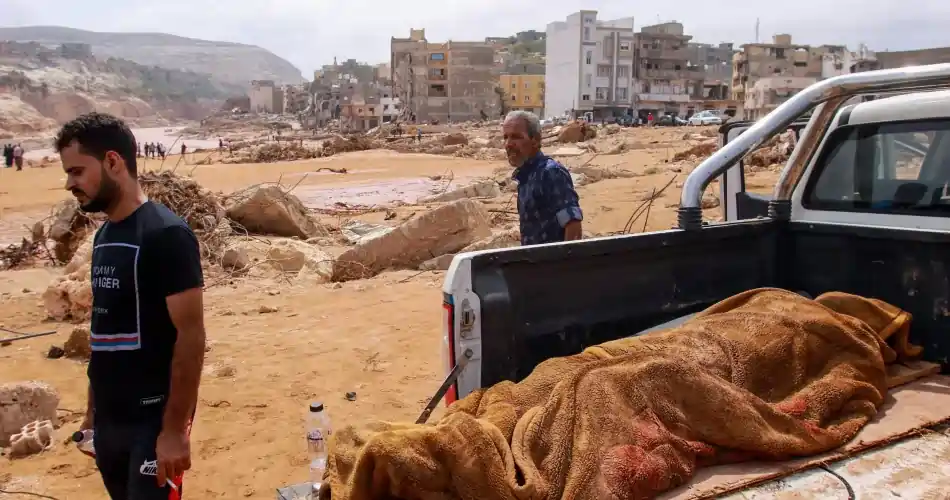Tragedy in Libya exceeds 6,000 dead, morgues reach their limit
Some voices in Libya estimate that the tragedy could reach between 18,000 and 20,000 dead, due to the fact that some affected regions are inaccessible for an accurate count, in addition to the 10,000 missing.
The death toll from the devastating floods that hit eastern Libya continues to rise and reached 6,000, with another 7,000 injured, however, Osama Ali, spokesman for the Tripoli-based emergency services, said the final death toll could not yet be determined as bodies were still being recovered from the affected areas.
However, there is now a new concern as authorities in Libya rush to bury their dead as bodies pile up in the streets of Derna, as another 10,000 people have been reported missing, which could exacerbate the situation.
Rescue workers in the devastated Libyan city of Derna have called for more body bags after a catastrophic flood killed thousands of people and swept many into the sea.
For now, the official information is that the death toll has risen to more than 6,000 people, according to Saadeddin Abdul Wakil, undersecretary of the Ministry of Health of the Unity Government in Tripoli, one of the two rival governments operating in the country.
Because of the situation, morgues are full in hospitals that remain out of service despite the desperate need to treat survivors of the disaster.
According to the United Nations International Organization for Migration (IOM) in Libya, more than 30,000 people have been displaced by the floods in Derna, as significant damage to the region’s infrastructure has made some affected regions inaccessible to humanitarian groups.
According to experts, the destruction caused by storm Daniel has made the mammoth mission even more difficult for rescuers trying to clear roads and rubble to find survivors.
Not to mention that Libya was convulsed by the 2011 uprising against Muammar Gaddafi’s government and civil war. The scale of the destruction underscores the vulnerability of a country that for years has battled warring factions and chaos.
The UN-backed Government of National Unity (GNU), led by Abdulhamid Dbeibeh, is based in Tripoli in northwestern Libya, while its eastern rival is controlled by commander Khalifa Haftar and his Libyan National Army (LNA), which supports the parliament based in the east.

